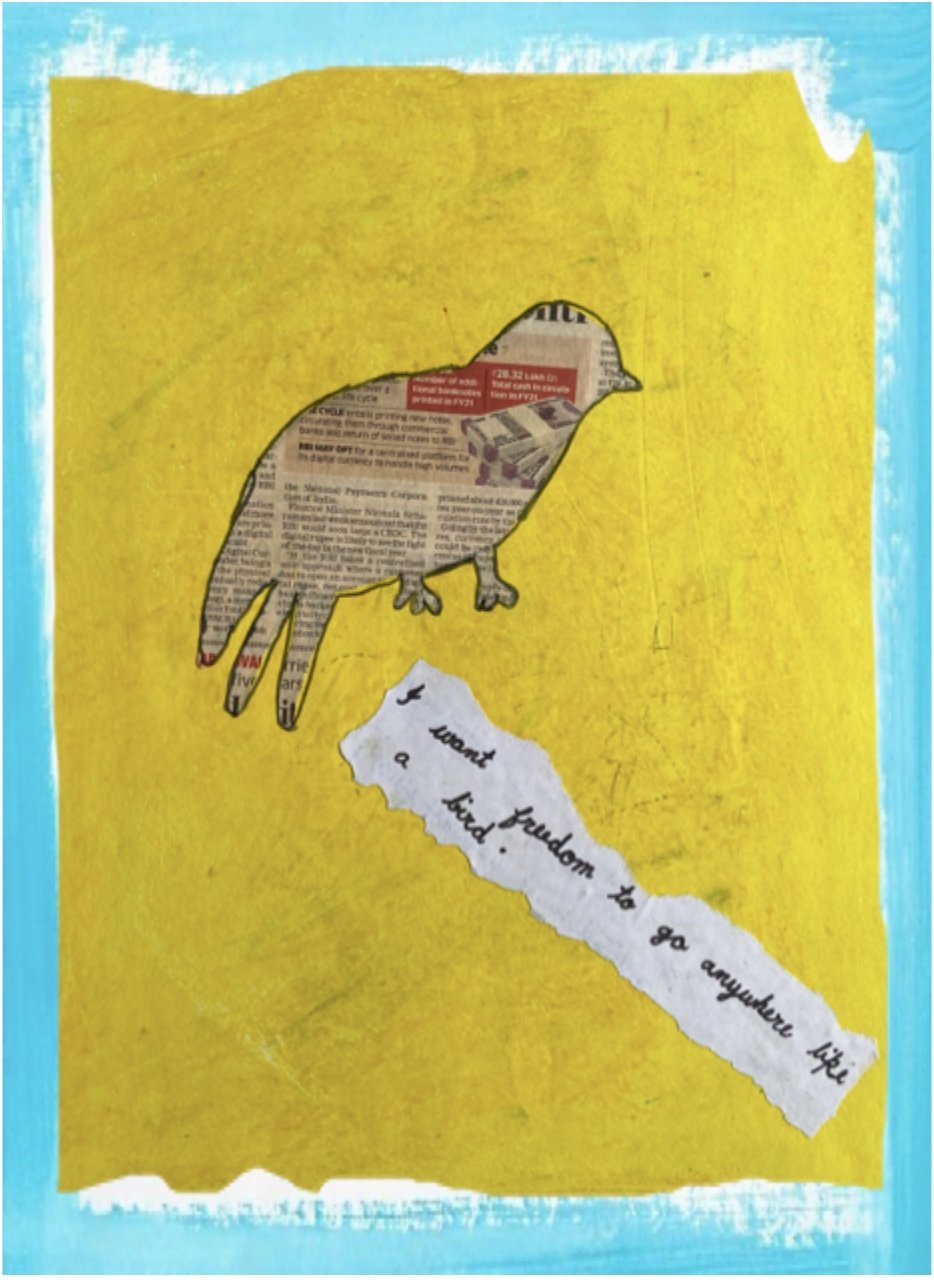Hum Hindustani: A Poetry Podcast in the Voices of Children
Children’s voices speak in poetry of liberty, equality and fraternity guaranteed to all citizens by the Constitution of India. This is the work of a project titled Hum Hindustani: The Indian Child Citizen in School and the World. Here’s more about the project:
Hum Hindustani is a research project on children and citizenship examined through the ideas of liberty, equality and fraternity, guaranteed to all citizens by the Constitution of India. It is part of the TESF India network that seeks to develop a better understanding of how education systems can be transformed to support sustainable development…..The project uses a combination of arts-based exercises, done in collaboration with children to draw out their responses, as well as documentary interviews with the children and some adults.
The podcast includes ten episodes. Samples:
“Freedom is a way of thinking/ that enables us to understand each other.”
“Because I like to celebrate/ Id and Diwali.”
“Equality is/ when everyone goes to vote/ inequality is/ when someone says, /Don’t talk to her, she’s from a lower caste.”
The podcast is hosted by writer, filmmaker, and children’s author Samina Mishra. She asks:
Can there be a sense of belonging that is ever-expansive, that grows and swells to embrace more and more?
Each episode includes a writer, artist, educator or filmmaker responding to the children’s words. Participating in this call and response are Anushka Ravishankar, Shuddhabrata Sengupta, Manish Jain, Thejaswi Shivanand, Farah Farooqi, Nisha Abdulla, Natasha Badhwar, Poonam Batra, and Sampurna Chattarji.
The children’s voices made me look up the preamble to the 1949 Constitution of India, a document I haven’t in truth given much thought to since my own school days. Here it is, as amended in 1976:
We, the people of India, having solemnly resolved to constitute India into a sovereign socialist secular democratic republic* and to secure to all its citizens:
JUSTICE, social, economic and political; LIBERTY of thought, expression, belief, faith and worship; EQUALITY of status and of opportunity; and to promote among them all FRATERNITY assuring the dignity of the individual and the unity and integrity* of the Nation;
In our constituent assembly this twenty-sixth day of November, 1949, do hereby adopt, enact, and give to ourselves this constitution.
*Note: The words “socialist” and “secular” were added in 1976, as were the words “and integrity.”
Americans will recognize the opening. We, the people… Last year, copies of the constitution without the words “socialist” and “secular” were quietly distributed to members of parliament without any legal authorization to make those changes. Protests from a weak opposition were quickly dismissed with the government maintaining that the copies represented the “original” document. That’s akin to handing out the US Constitution without, say, the 13th and 15th amendments!
In India, as in America, illiberal forces are pulling in quite another direction from liberty, equality, and fraternity. Children, it seems, engage with the complexities of a democratic system with more curiosity and integrity than the grownups in charge.
